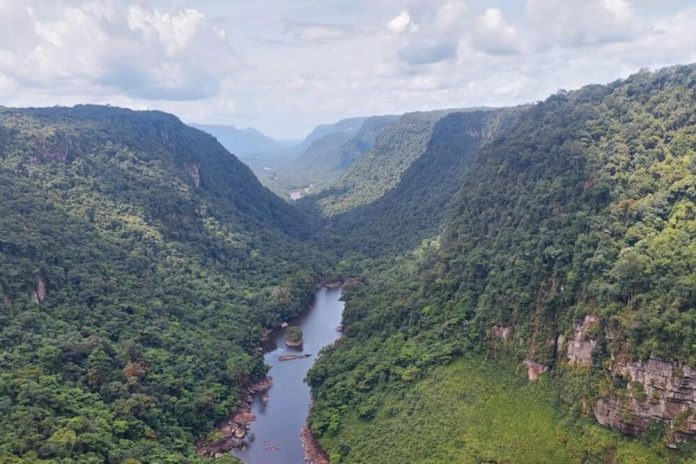Venezuelan President Nicolas Maduro and his Guyana counterpart Irfaan Ali will meet on Thursday to discuss a dispute over the oil-rich Essequibo region.
The meeting will take place in Saint Vincent and the Grenadines, according to the Caribbean country’s Prime Minister Ralph Gonsalves. He also stressed that there is an “urgent need to de-escalate the conflict and institute an appropriate dialogue, face-to-face.”
Both of you have concurred with this assessment in the quest of peaceful coexistence, the application and respect of international law, and the avoidance of the use or threats of force.
The situation in the region is intensifying, many world leaders reacted already to the worsening situation, some called for a peaceful resolution of the issue.
The United States, Britain and Russia called for a peaceful settlement. The conflict has caused concern in South America as well. On Thursday, Argentina, Brazil, Chile, Colombia, Ecuador, Paraguay, Peru and Uruguay issued a joint statement calling for “both sides to negotiate to find a peaceful solution.” Brazil, for instance, sent army reinforcements to its northern borders with Guyana and Venezuela amid rising tensions. The United States, in turn, reacted to Venezuela’s statement and announced joint military training with Guyana, which Venezuela condemned as a “provocation.”
Colombian President Gustavo Petro warned that the situation is potentially explosive and said the following words on X:
“The biggest misfortune that could hit South America would be a war.”
The leaders, however, are completely unprepared to negotiate. They presented completely opposite views, rejecting the contrary viewpoint.
“Once again, we will defeat lies, provocations and threats against our people. Our fatherland will prevail!” Maduro wrote on X, adding he would defend “Venezuela’s historic rights.”
Irfaan Ali, meanwhile, said Guyana remains “fully committed” to resolving the dispute through the International Court of Justice and not through negotiations with Maduro.
“I am firm that the controversy is before the ICJ and it’s not for negotiations and that will not change.”
Guyana has ruled Essequibo for more than a century. The dispute with Venezuela worsened after ExxonMobil discovered oil on Essequibo in 2015, giving Guyana the world’s largest per capita crude oil reserves. In turn, Maduro began legal manoeuvres after Sunday referendum to create a Venezuelan province on Essequibo and ordered the state oil company to issue licences for oil production in the region.
